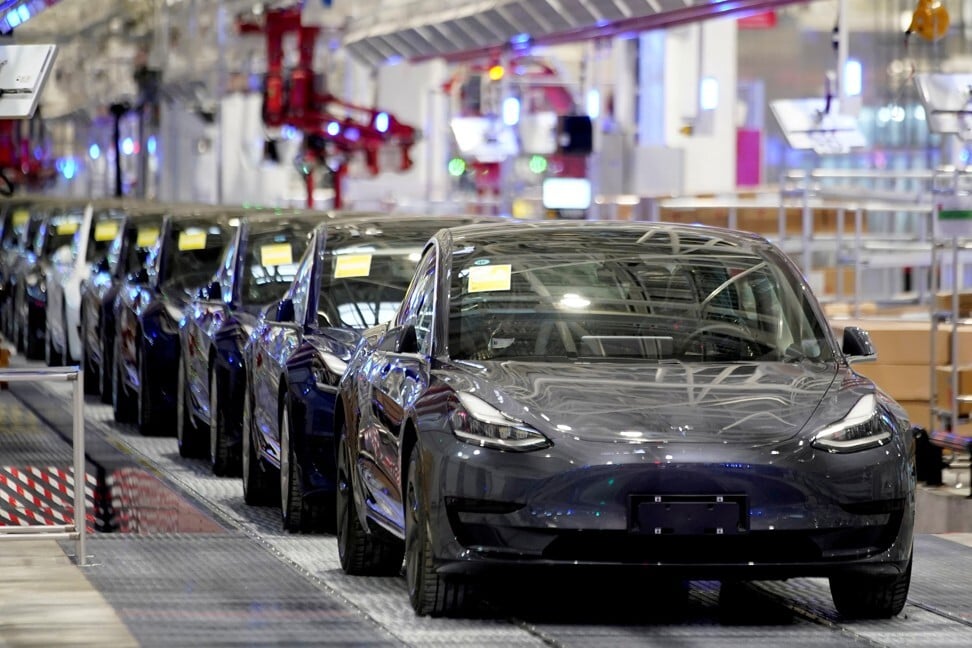
Tesla ships models 3 and Y with faulty USB ports from Shanghai assembly as global chip shortage spreads to China
- Starting from November 6, the USB ports in the central consoles of Model 3 and Model Y vehicles can only be used for charging, not for data transfer
- Numerous Tesla owners in the US were caught by surprise last week when their Models 3 or Y electric vehicles were delivered with missing USB ports
Tesla is shipping electric vehicles with defective USB ports from its Shanghai Gigafactory, as the global shortage of semiconductor chips has also affected the bellwether maker of smart cars in the world’s largest vehicle market.
Starting from November 6, the USB ports in the front-row central consoles of the Model 3 sedans and Model Y sports utility vehicles (SUVs) can only be used for charging, not for data transfer, Tesla said in response to customers’ queries. The previous USB ports were usable for both charging and data transfers, according to the carmaker’s specifications.
Tesla’s setback may be a boon to LiAuto, NIO and Xpeng, giving the three China-based competitors – who have yet to report any issues caused by the chip shortage – a leg up in quality over the market’s sales leader. Numerous Tesla owners in the United States reported last week that they had been caught by surprise when their Models 3 or Y electric vehicles were delivered with missing USB ports, in some cases gaping holes where the universal service bus should have been.
“The impact could be huge for Tesla, as consumers who consider the defect an important issue might switch to other brands, and it risks the violation of consumer rights by not giving advance notice to the buyers,” said David Zhang, a researcher for the automotive industry at the North China University of Technology.
The world’s largest vehicle market since 2009, China is also the biggest semiconductor importer, buying US$38 billion of chips as recently as June, almost double the value of what the country spends on crude oil in the same month. The worldwide shortage started in late 2020, as foundries misjudged the demand of work-from-home employees and increasing demand for electronic gadgets amid the Covid-19 pandemic.
Chips are widely used in automobiles, even among those powered by petrol-guzzling internal combustion engines, as they are found in everything from key fobs to entertainment systems and navigation controls. In all-electric smart cars, they are even more ubiquitous.

The global inventory of electric cars increased 40 per cent to 10 million units in 2020, while the entire automobile market shrank by more than 15 per cent amid the Covid-19 pandemic, according to the International Energy Agency (IEA). Worldwide sales expanded by nearly 50 per cent in the first three quarters of this year, the data showed.
“The automotive chip shortage should start easing in the second half of 2021, but the pressure will persist throughout 2022,” Gary Ng, senior economist for Asia Pacific at French investment bank Natixis, said. “The real wave of capacity expansion does not seem to arrive until 2023.”
LiAuto, NIO and Xpeng have yet to report the effects of any chip shortage. It’s unlikely that Chinese carmakers will face the same problem like Tesla as they can find lower-end or domestic chip alternatives, according to Zhang.
“Multiple suppliers making chip components [are] required for the USB ports, but Tesla might have higher requirements for the ones installed on the Model 3 and Model Y,” said Zhang. “For smaller chips installed on the USB ports, there won’t be huge differences in performance and costs to find an alternative in China.”


